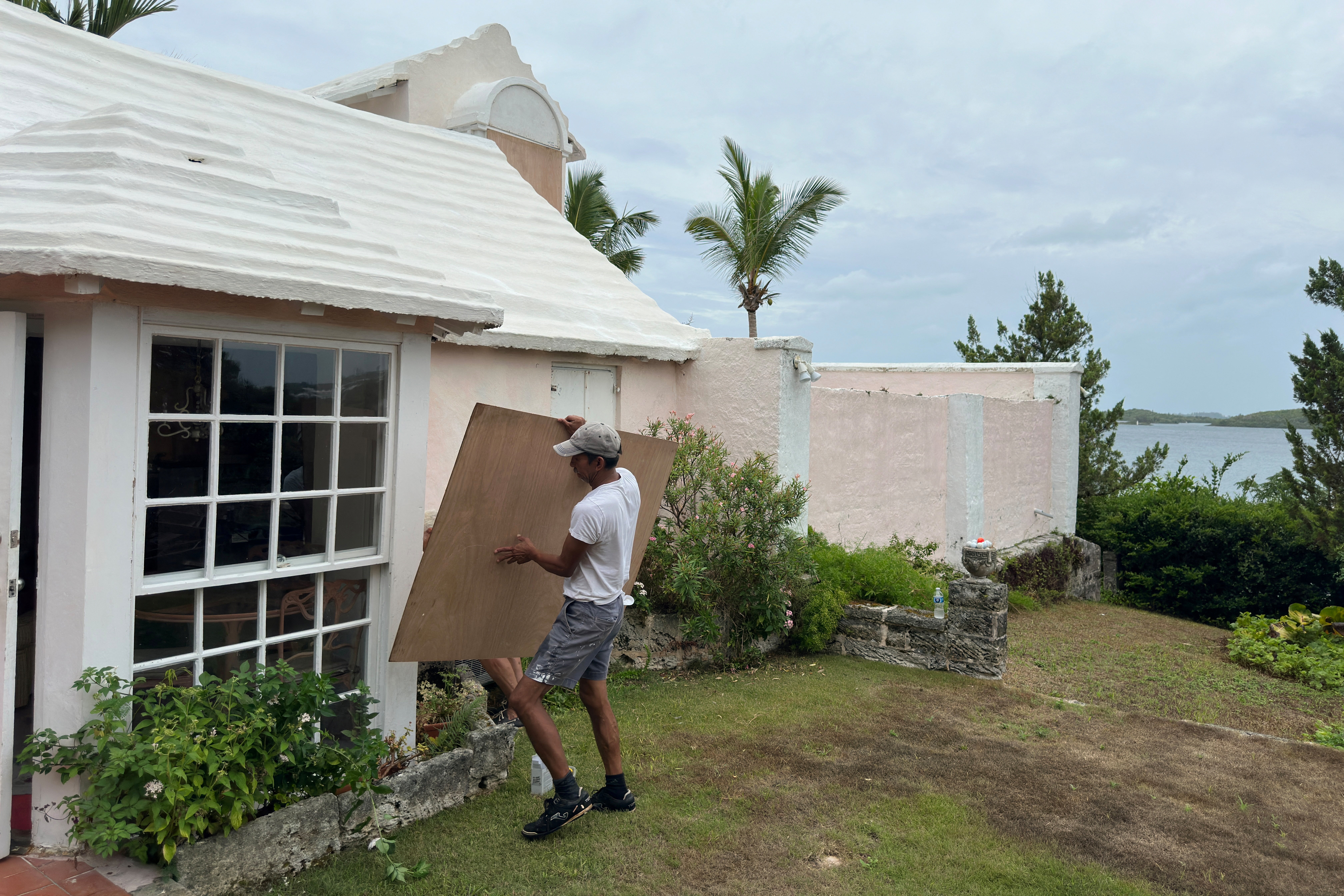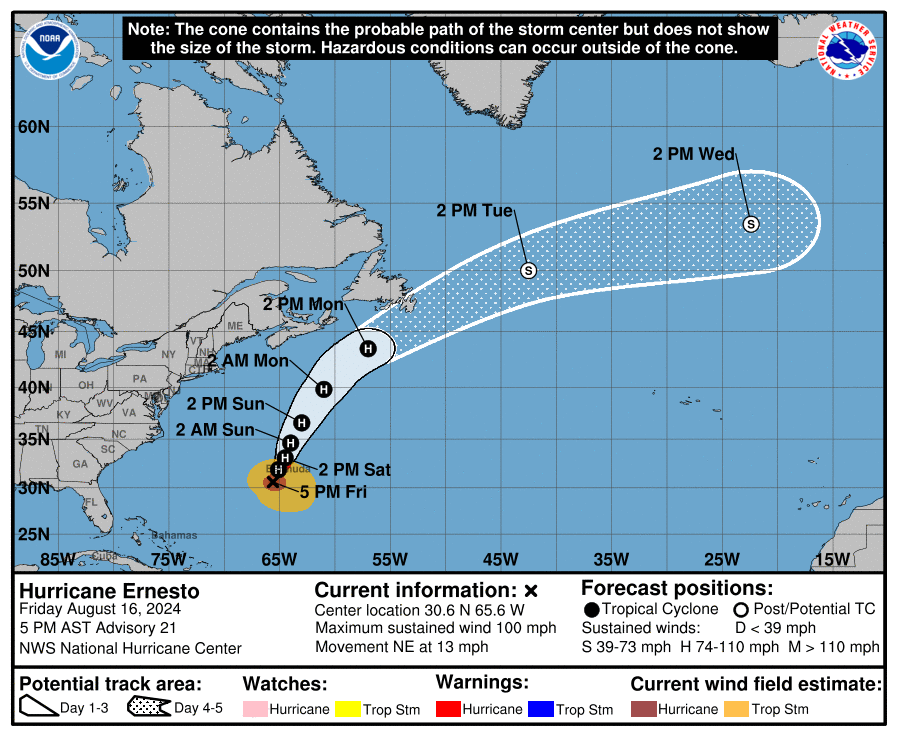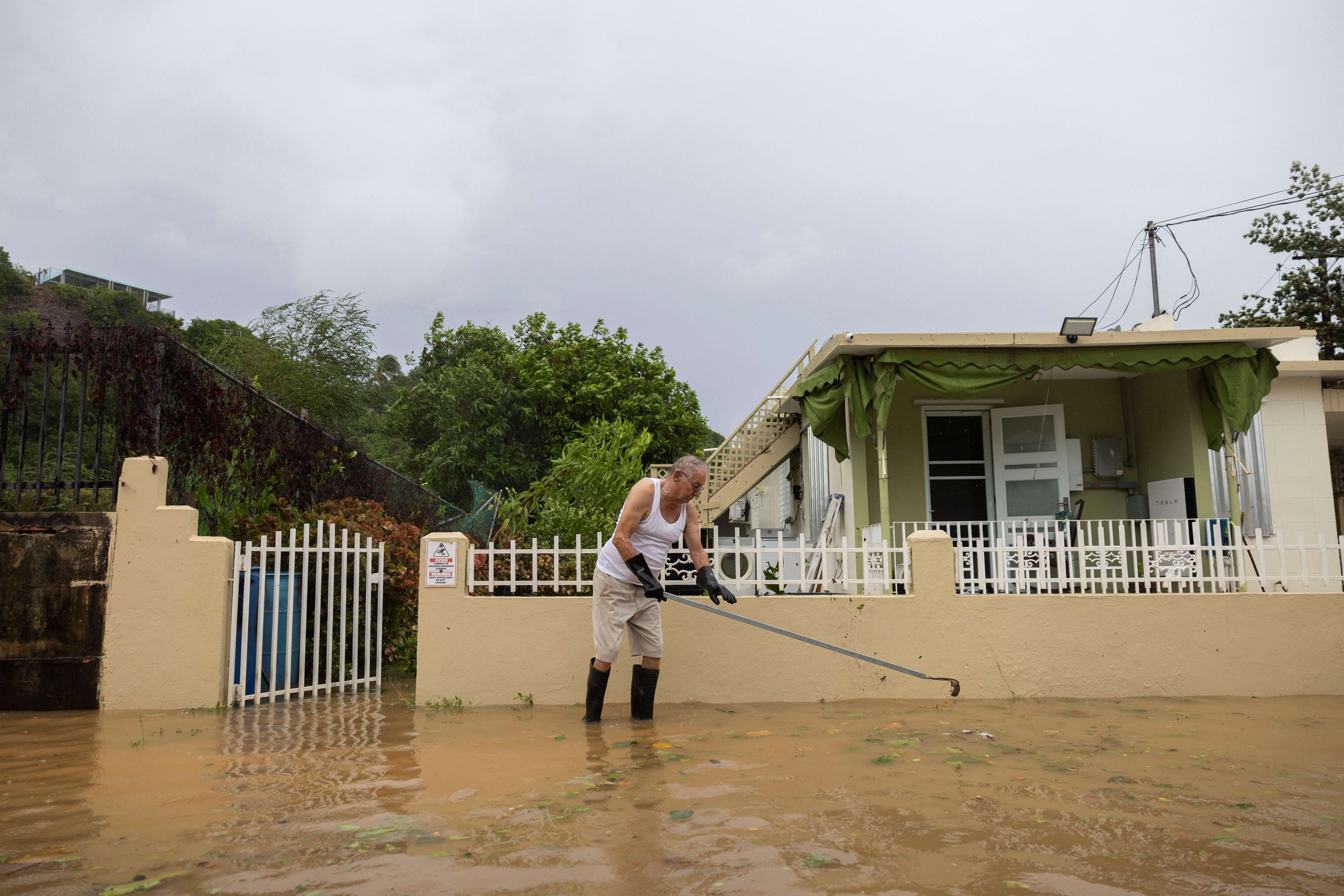Hurricane Ernesto has strengthened into a Category 2 storm with winds of 100 mph and is heading toward Bermuda.
The storm is expected to hit Bermuda on Saturday morning, according to the National Weather Service. Ernesto will bring hurricane-force winds and bring up to nine inches of rain and flooding to the islands. The storm could also cause life-threatening rip currents along the U.S. East Coast as it moves northward over the weekend.
Bermuda will endure “hurricane- and tropical storm-force winds for at least 36 hours,” Bermuda’s National Security Minister Michael Weeks said on Friday, calling the storm a “significant risk to life and property.”
“Make no mistake, this storm is real,” Weeks said.
The storm may weaken after passing Bermuda but is expected to strengthen again, according to the NWS. Ernesto will then move north and possibly cross the east coast of Newfoundland late Monday.

Authorities prepared by closing government offices, public transport and airports, and residents flocked to stores to stock up on supplies.
Bermuda resident Trina Graham told USA Today that her family had prepared for the storm by sealing off doors with thick plastic and securing gas bottles to fuel their stoves.
“We’ve got everything locked down,” she told media. “It’s very cloudy, but there’s no terrible wind yet. It’s the calm before the storm.”

Daisy Dohanos, an American holidaying in Bermuda, also told USA Today she had “done a quick lesson” in hurricane preparedness.
She’ll be staying with a friend who has three rescue dogs.
“We’re just hunkering down,” Dohanos told the outlet. “I just hope they’re not scared. I’ve heard they’re not scared of the storm so maybe they can calm me down.”
Meanwhile, in Puerto Rico, about 300,000 power customers are without power after Ernesto struck the territory on Tuesday. Among those outages: Northwest A heat wave warning has been issued for the area.
“It’s not easy,” said Andres Cabrer, a 60-year-old Puerto Rico resident who has no water or electricity. Associated Press.

Ernesto is the fifth named storm this year and is forecast to be an “extremely active” Atlantic season, with the surge being driven by record ocean temperatures linked to the climate crisis.
Last year was the hottest on record, but 2024 is expected to break that record again.







